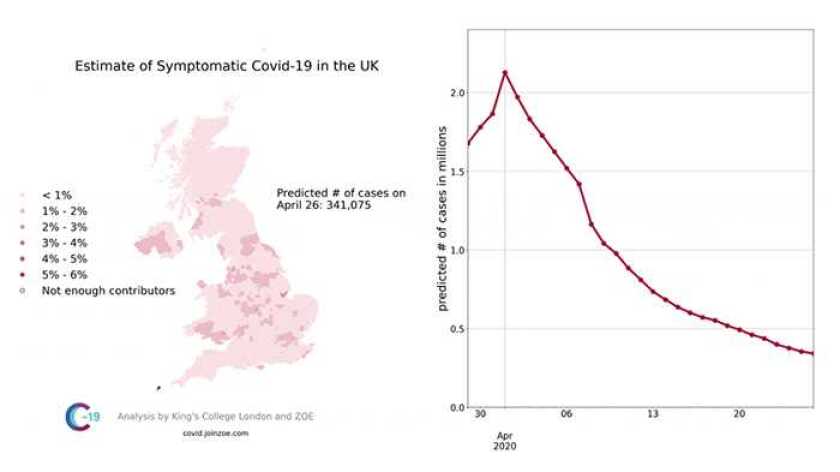The German government said it would use a decentralised solution to help monitor the spread of Covid-19 and alert contacts of those who are infected.
At the same time the UK’s National Health Service (NHS) has turned down a proposal from Apple and Google to develop a similar system and said it will develop its own.
The Apple/Google service, like that already deployed in Singapore, was designed to be decentralised in order to preserve people’s privacy, with details contained only on people’s phones. The NHS system is likely to be based on a central system that would send out details to those who have been in contact with people who become infected.
Meanwhile another UK project, developed independently by two London hospitals, Guy’s and St Thomas’, in association with King’s College London and a research company called Zoe, has published its first analysis from its symptom tracker, which uses 2.2 million mobile phones for people to self-report.
Covid-19 disproportionally more common and more severe in people living in urban areas and regions of higher poverty, says the study.
“This could reflect that individuals in more deprived areas are more exposed or vulnerable to the virus,” said Dr Cristina Menni, an epidemiologist from King’s College London. “It may be that they work in jobs requiring work out of the home, where they are more likely to be exposed to circulating virus.”
Her colleague Dr Claire Steves said: “This finding is important for allocation of resources in this pandemic. Areas with higher rates of poverty will need greater supply of PPE and more hospital capacity.”
At the same time the team is estimating that the UK’s peak in new infections was at the start of April, with a steady decline since then (see picture).
In Germany, according to the Bloomberg agency, a group of German start-ups also had been in talks with the government about developing an app that would help trace people who have been exposed to the virus.
Under a decentralised system, contact-tracing apps collect anonymous data about nearby mobile phones using Bluetooth. Once an infection is confirmed, that information is sent to a server. People with devices using the app could learn if they had been in proximity to a confirmed infection without revealing the patient’s identity.
“A decentralised solution would create more trust among users,” said Steffen Seibert, spokesman for Chancellor Angela Merkel, according to Bloomberg.
According to Global Data, contact tracing technology is already in China, South Korea and India. Venkata Naveen, the company’s disruptive tech analyst at GlobalData, said: “With the pandemic worsening every day, the digital contact tracing technology can help various governments to access the in-depth movement data of their citizens using smartphones and swiftly identify at-risk cases.”
In China, the National Health Commission has developed a Close Contact Detector to help people identify whether they are at the risk of being infected. Users can access the app by scanning a QR code through platforms such as QQ, Alipay and WeChat. The app alerts users in case they are in close contact with people who have been confirmed or suspected of having the virus.
South Korea’s Corona 100m app alerts individuals through push notifications if they had come across any Covid-19 patients within 100m of where they are.
The mobile app pulls relevant data from government to show when a patient was diagnosed with Covid-19, along with the person’s age, gender and places of visit.
India’s National Informatics Centre has created its own mobile app, Aarogya Setu, to track Covid-19 patients or suspected cases that need to be quarantined. The app also uses Bluetooth technology and the phone’s location data to automatically identify if a patient put under quarantine has come into close contact with another individual.
“Digital apps have the potential to help authorities know everything about the pandemic – its place of origin, where it’s heading next and other crucial epidemiological insights to mitigate it,” said Naveen. “Taking cues on how various Asian countries are leveraging smartphones to slow the spread of the novel coronavirus, the US, UK and European countries are fast catching up to develop similar digital contact tracing tools.”






